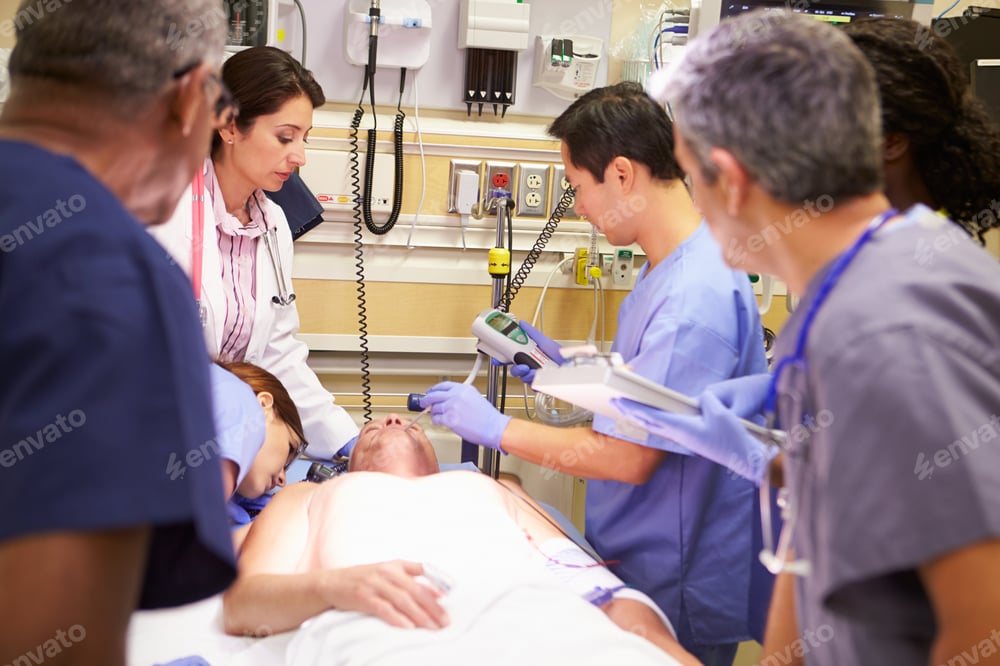Emergency medicine is a dynamic field that requires high-level expertise and quick decision-making. Dr. James J. Blake and other professionals in this sector are trained to handle critical medical situations where every second counts. With the integration of advanced technologies, the capabilities of emergency medical personnel have greatly improved, leading to better patient outcomes.
The field is also characterized by its ability to adapt to new challenges through innovation in medical practices and procedures. However, several challenges, like resource limitations and maintaining quality during peak times need effective leadership and performance evaluation tools. Looking ahead, the future of emergency medicine is expected to witness significant changes with further technological advancements and shifts in healthcare policies.
Essentials of Emergency Medicine
Emergency medicine encompasses a specialized area of healthcare dedicated to treating urgent illnesses and injuries that require immediate medical attention. This field is characterized by its fast-paced, high-pressure environment, where decisions often need to be made quickly to stabilize and treat patients effectively. The foundation of excellence in emergency medicine lies in the integration of high-quality care with swift and efficient service. Effective communication among doctors, nurses, and other healthcare staff is crucial in orchestrating the rapid responses necessary in emergency scenarios. These core components ensure that patients receive the best possible care during critical moments.
Furthermore, maintaining high standards in emergency departments needs a seamless blend of expertise, rapid decision-making, and cohesive teamwork. Each element is vital to managing the challenges that arise in emergency settings. The commitment to excellence in this field is a testament to the dedication and skill of those who operate within it, constantly striving to save lives and improve patient outcomes.
Entering Emergency Medicine
The path to becoming proficient in emergency medicine is rigorous and requires a solid educational foundation followed by specific certifications. Medical professionals in this field often undergo years of training, which not only includes medical schooling but also specialized residency programs in emergency medicine. This extensive training is vital to prepare them for the unpredictable nature of the work they will encounter, where they must make quick, often life-saving decisions.
Continued growth is equally vital in this ever-evolving field. Through ongoing training and engagement with the latest medical research, emergency medicine professionals refine their skills and adapt to new challenges. The use of simulation-based education has notably enhanced this process, providing realistic scenarios that help hone decision-making skills and improve patient care strategies.
Emergency professionals often participate in workshops and seminars that focus on the latest advancements in medical technology and techniques. These educational opportunities are crucial for keeping skills up-to-date and ensuring that the care provided meets the highest standards of excellence.
Innovations in Technology and Procedures
Advancements in technology have transformed the landscape of emergency medicine. The integration of telemedicine has allowed doctors to extend their reach, providing critical consultation and care to patients even in remote locations. Similarly, the adoption of artificial intelligence in diagnostic processes has streamlined operations, allowing for quicker and more accurate assessments, which are crucial in emergency settings.
The implementation of new protocols can significantly enhance the efficiency and effectiveness of emergency services. These innovations not only improve patient outcomes but also optimize the workflow within emergency departments, reducing wait times and increasing the capacity to handle severe cases. The ability to rapidly adapt and implement these new procedures is a testament to the field’s agility and commitment to continuous improvement. Incorporating these technological advancements into everyday practice has empowered emergency medicine professionals to provide a higher standard of care.
Overcoming Challenges
Emergency medicine faces substantial challenges, including resource limitations and an often overwhelming influx of patients. Addressing these issues demands innovative strategies and robust management to ensure that the quality of care stays maintained under pressure. Many emergency departments have adopted lean management techniques to optimize resource use and improve patient flow without compromising care quality.
Another challenge is maintaining high standards of care during peak times or in crises. Strategies such as triage protocols and the implementation of practice providers have proven effective in managing large volumes of patients.
Leadership and Performance Evaluation
Effective leadership is crucial in the high-stress environments of emergency departments. Leaders in this field must possess the ability to make rapid decisions, inspire their teams, and maintain calm under pressure. Their role is critical in fostering a culture of excellence and accountability.
Assessing the performance of emergency medical services involves a range of indicators, from patient feedback to clinical outcomes. Ongoing evaluation helps identify areas for improvement and celebrate successes. This process ensures that the services provided meet the changing needs of the community and adhere to the highest standards of medical care.
Future Prospects in Emergency Medicine
The future of emergency medicine is poised for significant changes driven by advancements in technology and shifts in healthcare policies. Preparing for these changes requires proactive planning and adaptation to ensure that emergency services can meet future demands efficiently and effectively. Anticipating potential challenges and developing solutions in advance will be vital to navigating the future landscape of healthcare.
Moreover, as the field continues to evolve, there will be a greater emphasis on integrating more personalized medicine approaches and improving interoperability among healthcare systems. These advancements will likely enhance the precision and efficiency of emergency medical services, offering prospects for both practitioners and patients in the years to come.


